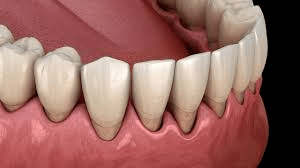Teeth Sensitivity
Most people will experience teeth sensitivity at least once in their lifetime. While pain caused by hot or cold items could be a sign of a cavity, it’s also common in people who have sensitive teeth caused due to many reasons. Tooth sensitivity also called dentinal hypersensitivity, is exactly what it sounds like pain or discomfort in the teeth as a response to certain stimuli, such as hot or cold temperatures.
Overview
Teeth sensitivity may be a temporary or a chronic problem, and it can affect one tooth, several teeth, or. sometimes all the teeth in a single individual. It can have a number of different causes, but most cases of sensitive teeth are easily treated with a change in oral hygiene regimen.

Symptoms
People with sensitive teeth may experience pain and discomfort due to some triggers. You may also experience pain at the root tips of the affected teeth. The common triggers which induce sensitivity are listed below:
- Hot food beverages
- Cold food beverages
- Cool air or breeze
- Sweet foods and beverages
- Acidic beverages
- Cool water during dental scalings
- Alcohol-based mouth rinses
Sensitivity symptoms can come and go over a period of time for no obvious reason. They may range from mild to intense in a few cases.
Causes Of Teeth Sensitivity
- Dental Caries
- Attrition of the teeth caused due to bruxism, hard brushing, etc
- Improper brushing techniques
- Acidic beverages
- Gastroesophageal reflux can cause acid to come up from the stomach and esophagus into the oral cavity and may cause wear down of the teeth material leading to sensitivity
- Gingival recession can also lead to tooth sensitivity
- Broken or chipped teeth can leave the dentin exposed leading to pain on exposure to the outer environment
- Worn-out or poor fillings can also lead to tooth sensitivity due to leakage
- Secondary caries are also a cause of tooth sensitivity
- Teeth bleaching in some cases can lead to sensitivity
- Dental Fluorosis will also lead to sensitivity due to the destruction of the enamel layer

Treatment
- If your teeth sensitivity is mild, you can try over-the-counter dental treatments. You can select toothpaste that’s labeled as being specifically made for sensitive teeth. This kind of toothpaste won’t have any irritating ingredients present in them and may have desensitizing ingredients that help block the discomfort from traveling to the nerve of
- the tooth making you feel teeth sensitivity. When it comes to mouthwashes, choose an alcohol-free mouth wash, as it will be less irritating to sensitive teeth. Using soft-bristled toothbrushes and brushing more gently can also help. It typically takes several applications for these remedies to work but you can see an improvement within a week. If home treatments doesn’t work, you can visit your dentist about prescribing toothpaste and mouthwash. The dentist may also apply fluoride gel or prescription-grade desensitizing agents in-office which can help to strengthen the enamel and protect the teeth.
- Underlying systemic problems should be treated. Gastroesophageal reflux can be treated by taking medications.
- Bruxism should be treated to prevent attrition of the teeth. in mild cases you should train yourself to stop clenching or biting your teeth, in severe cases you can use a mouthguard which will help you prevent teeth clenching even at night times.

- Worn-out or old restorations should not be neglected and should be treated properly to avoid secondary caries.
- Dental fluorosis can also be treated depending on mild to severe cases.
- Proper brushing techniques should be implemented to protect the teeth from sensitivity and brushing teeth should not exceed more than 2 to 3 minutes.